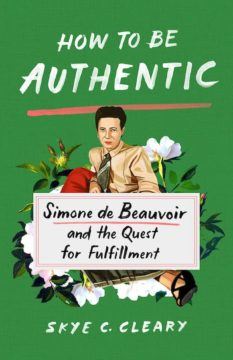Rebecca Brenner Graham in the Los Angeles Review of Books:
 Although existentialist philosophers rarely labeled themselves as such or agreed on a definition of what they were doing, existentialism is a coherent and sound philosophy. It begins with the claim that “existence precedes essence,” meaning that people enter the world (they exist) before they can be said to have a fixed definition (or essence). They are free to create their own essence, and with this freedom comes responsibility. The contrast between how strange it is to exist and the reality that we are here is called “absurdity.” From absurdity, nihilists would avow that life is meaningless, and thus do whatever they want. Existentialists, however, typically reject nihilism and embrace authenticity. For Martin Heidegger, authenticity was related to our “being toward death.” For Friedrich Nietzsche, the “eternal return of the same” counsels us to live as if our life will repeat itself eternally.
Although existentialist philosophers rarely labeled themselves as such or agreed on a definition of what they were doing, existentialism is a coherent and sound philosophy. It begins with the claim that “existence precedes essence,” meaning that people enter the world (they exist) before they can be said to have a fixed definition (or essence). They are free to create their own essence, and with this freedom comes responsibility. The contrast between how strange it is to exist and the reality that we are here is called “absurdity.” From absurdity, nihilists would avow that life is meaningless, and thus do whatever they want. Existentialists, however, typically reject nihilism and embrace authenticity. For Martin Heidegger, authenticity was related to our “being toward death.” For Friedrich Nietzsche, the “eternal return of the same” counsels us to live as if our life will repeat itself eternally.
Some French existentialists, however, posited more nuanced ideas of authenticity that engaged with other people, systems of oppression, and the world. Skye C. Cleary’s How to Be Authentic: Simone de Beauvoir and the Quest for Fulfillment explores Simone de Beauvoir’s ideas of existential authenticity and applies them to life today.
More here.
